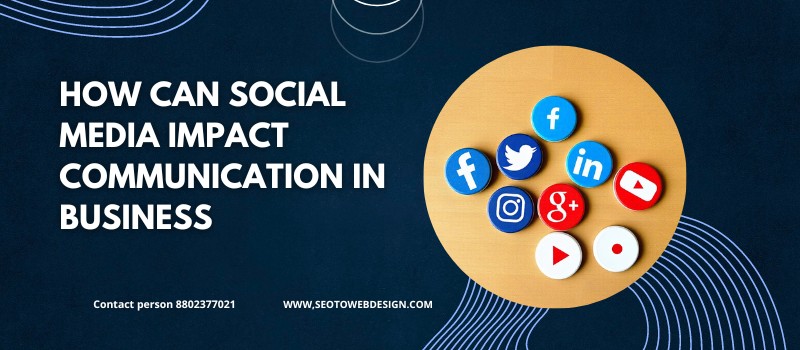1.Enhanced Customer Engagement and Interaction
Social media offers businesses direct access to their audience in a way that was previously unimaginable. Platforms like Facebook, Instagram, Twitter, and LinkedIn allow brands to engage with their customers in real time, fostering genuine connections and building loyalty.
Instant feedback: Social media lets customers voice their opinions, ask questions, and provide feedback immediately. This direct interaction helps businesses gauge customer satisfaction and quickly address any concerns.
Humanizing your brand: Through regular posts, responses, and interactions, companies can showcase their personality, making them more relatable to customers. This increases loyalty by fostering trust.
This two-way communication flow strengthens the relationship between businesses and their customers, ultimately improving brand loyalty and customer retention.
2. Improved Internal Communication and Collaboration
While social media is mostly associated with external communication, its benefits for internal communication are often overlooked. Social media-like platforms such as Slack, Microsoft Teams, and Yammer are being adopted by companies to streamline internal communication.
Breaking down silos: These tools allow employees from different departments to collaborate effortlessly, leading to better teamwork and productivity. Whether it’s sharing updates, brainstorming ideas, or solving issues in real-time, social media platforms enhance communication efficiency.
Real-time communication: Social media platforms enable instant messaging and quick information sharing, reducing the need for lengthy email chains and face-to-face meetings.
By improving communication channels within the organization, businesses can foster better collaboration, higher employee engagement, and a more connected workplace.
3. A Powerful Marketing and Branding Tool
Social media has completely changed how companies advertise their goods and services. It’s now one of the most effective channels for marketing and brand promotion.
Broader reach: Social media allows businesses to reach a global audience without spending a fortune. Companies can share content, run ads, and promote products to targeted demographics, increasing their visibility and reach.
Cost-effective advertising: Platforms like Facebook Ads and Instagram Ads provide cost-effective marketing solutions for businesses looking to target specific customer groups. The ability to target based on interests, location, age, and other criteria ensures that businesses get the most out of their advertising budgets.
Influencer marketing: Social media has given rise to influencer marketing, where brands collaborate with influencers to promote their products. This strategy helps businesses reach niche audiences and build credibility through trusted figures.
Through social media marketing, businesses can effectively communicate their value propositions, attract new customers, and retain existing ones.
4. Crisis Communication and Reputation Management
In today’s fast-paced world, news travels fast—and so do crises. Social media can serve as a critical tool for managing communication during crises.
Quick response times: When a company faces a public relations crisis, social media allows for immediate responses. Companies can release statements, clarify issues, and address concerns within minutes, helping to manage the narrative and prevent the situation from escalating.
Building transparency: Social media also provides a platform for businesses to be more transparent. Being open and honest with your audience during a crisis can prevent long-term reputational damage and help rebuild trust with your customers.
Handling crises effectively through social media communication can minimize damage and maintain the trust of your stakeholders.
5. Collecting Data and Insights for Better Communication Strategies
One of the most valuable aspects of social media is its ability to provide businesses with data and insights into customer behavior.
Analytics tools: Platforms like Facebook, Twitter, and LinkedIn offer businesses in-depth analytics on customer engagement, preferences, and trends. By analyzing this data, businesses can refine their communication strategies, focusing on what resonates with their audience.
Market research: Social media also serves as an excellent tool for conducting market research. By monitoring conversations, trends, and customer feedback, businesses can stay ahead of industry shifts and adjust their communication efforts accordingly.
With these insights, businesses can craft more personalized and effective communication strategies that drive engagement and business growth.

